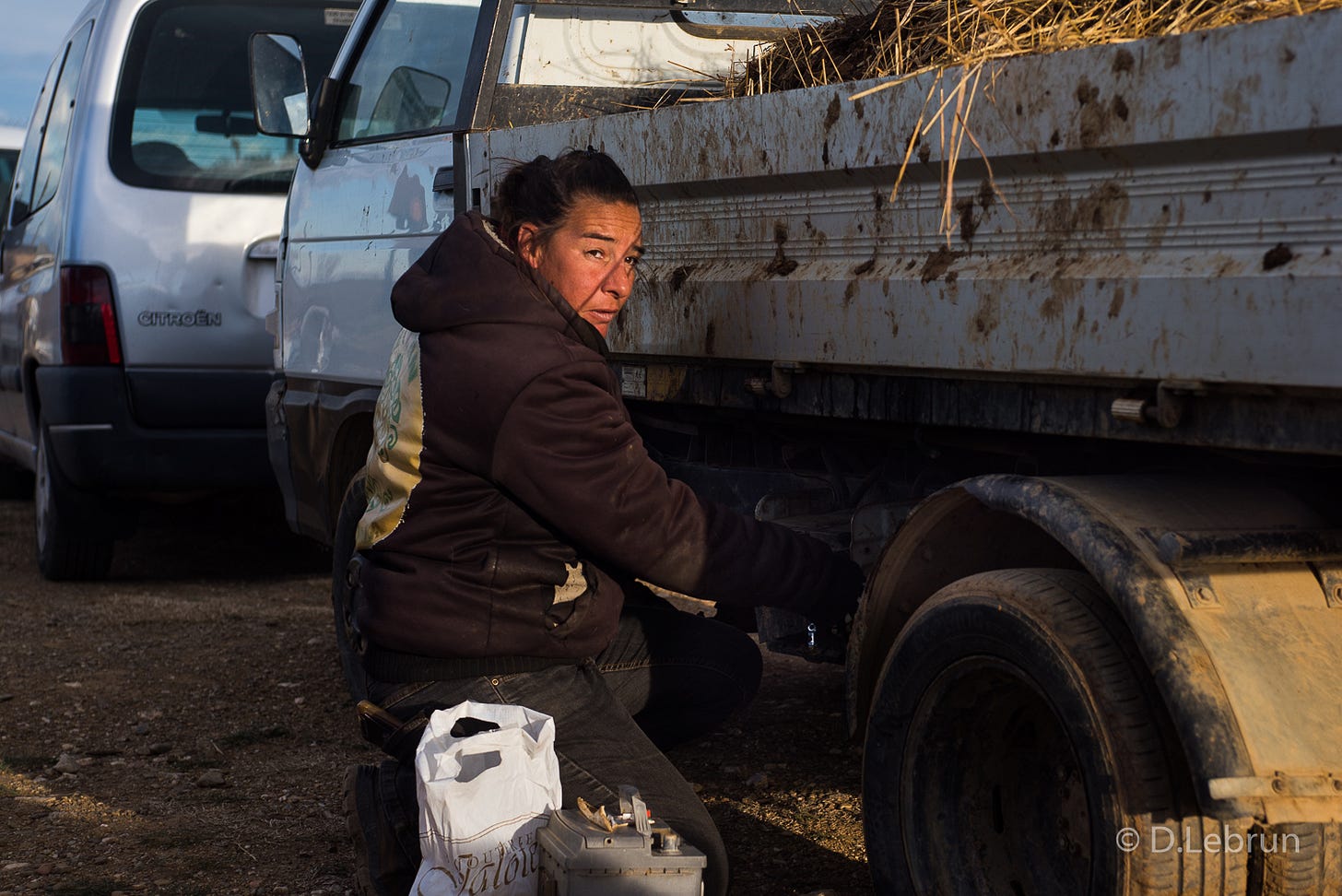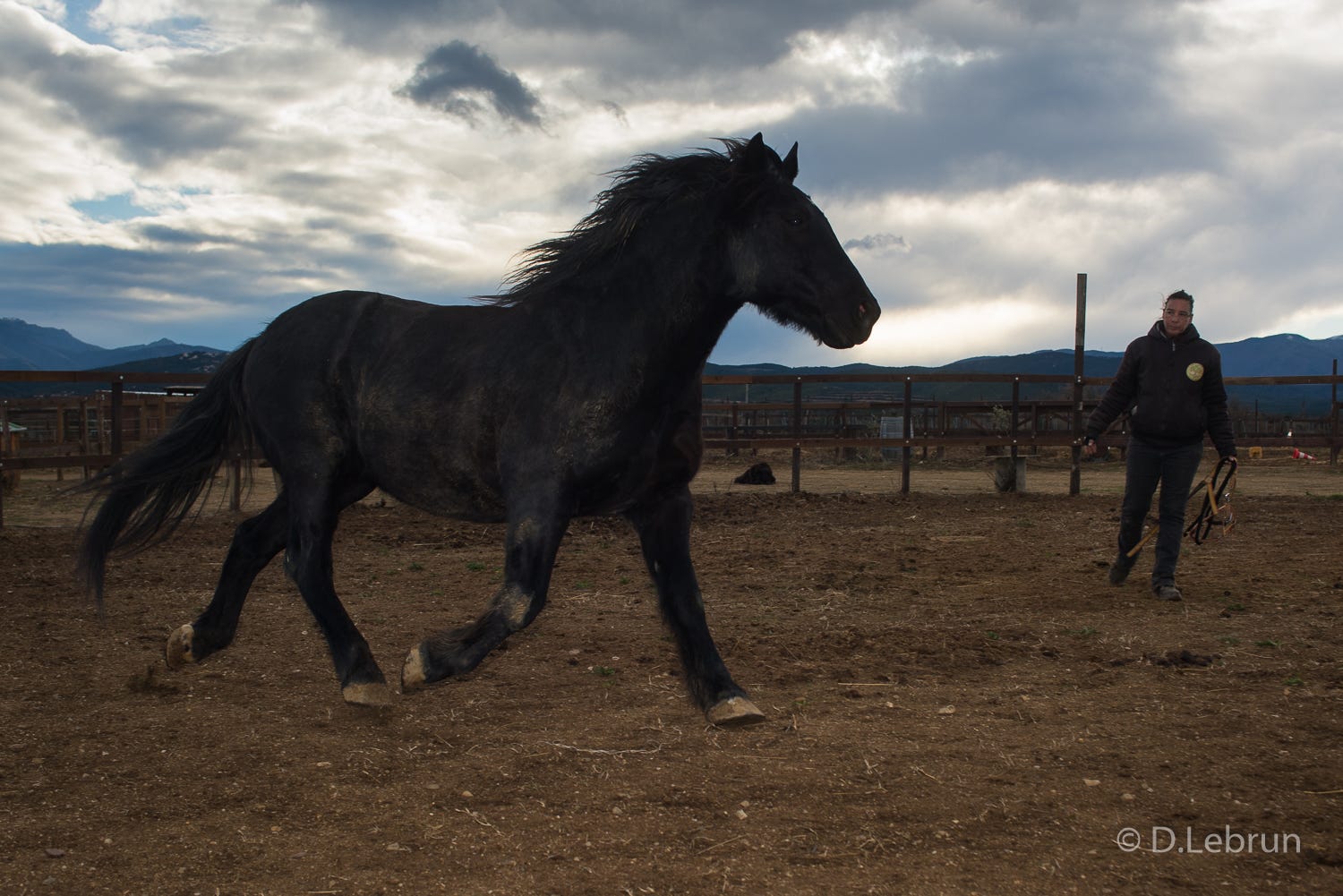Artificializing landscapes
Set-ups of Agrivoltaic Infrastructures Threaten the Holy Mountain of the Catalan people
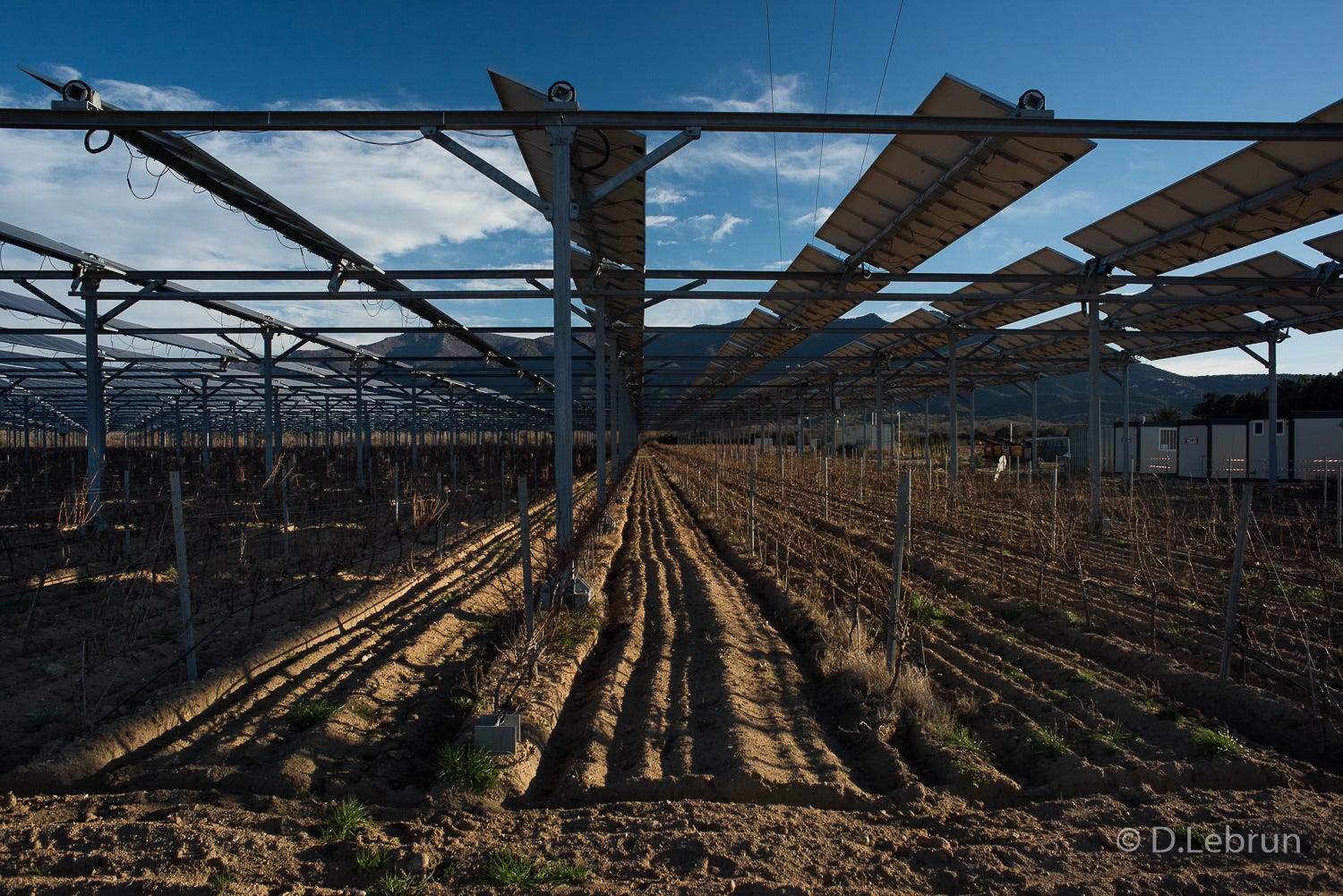
The planned set-up of tens of hectares of agrivoltaic infrastructure without sufficient regulations threatens to destroy the scenery of the Mount Canigou massif, one of the last wild environments in South-Western Europe. Local communities are protesting against this top-down imposition. This will not only devastate the territory’s tourism and local finely-tuned agricultural practice but inflict a renewable energy and agroindustrial food production which is highly questionable in terms of biodiversity and conservation of habitats. In short it is blatant green-washing.
This photo-series, shot in January 2023, documents how these infrastructures will change the territory, catching the clash between the harmonious low-impact agricultural traditions and the high-tech, high-impact agrovoltaic set-up. Steel and concrete, controlled by AI, invades this landscape. The photos contrast the wild scenery with the suspended uniformity of these photovoltaic structures. Underneath, plants wither.
Read an extensive analysis of the topic in French by my co-author Loic Santiago:
Dans les Aspres, tout le monde est en train de détester Sun' Agri.
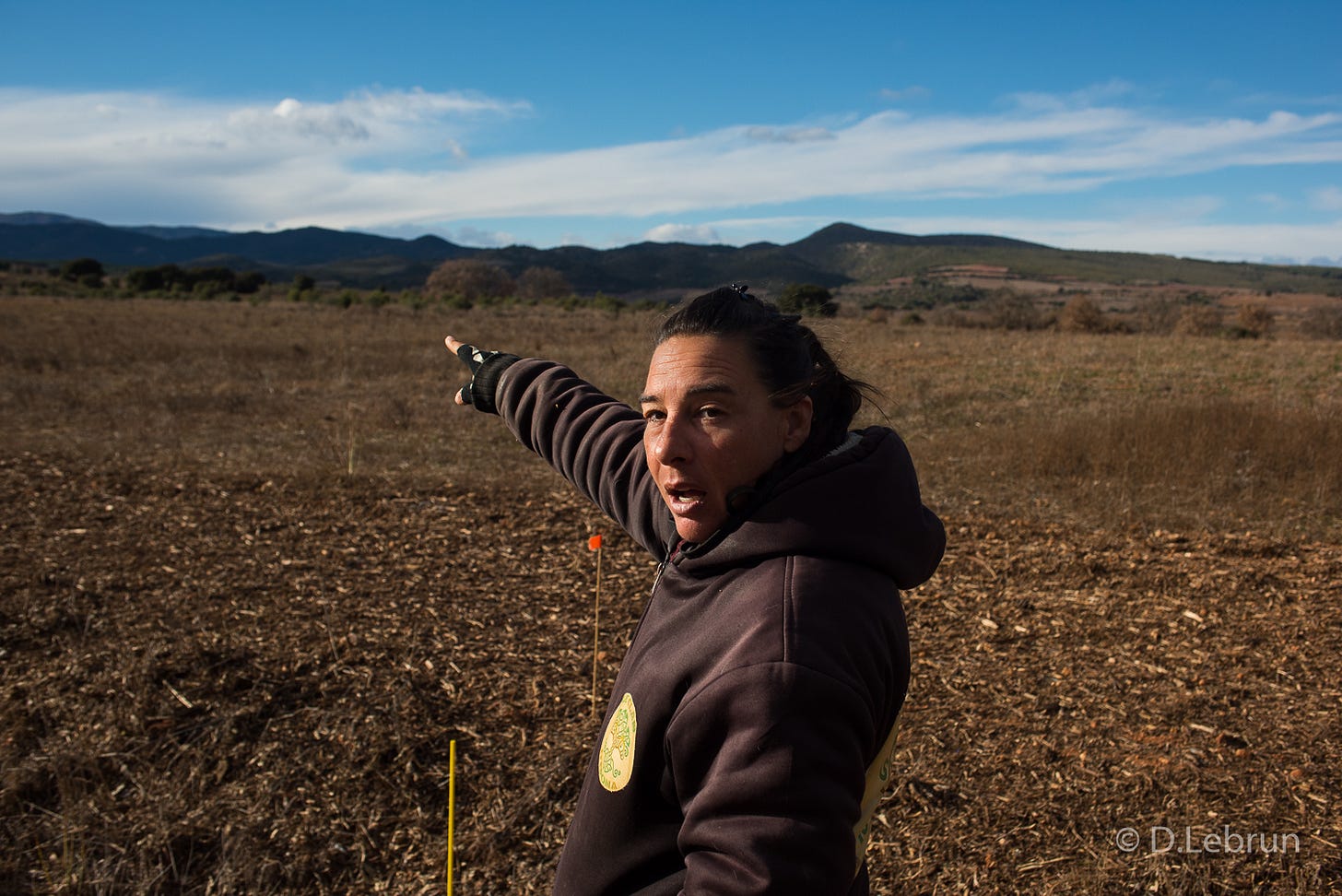
The area, called Les Aspres is mostly farmed on a small-scale, many farmers grow organically or limit the input of chemicals. The farming scope includes vineyards, fruit orchards, market gardening, small cattle farms or soft tourism infrastructure, like Celia’s equestrian center.
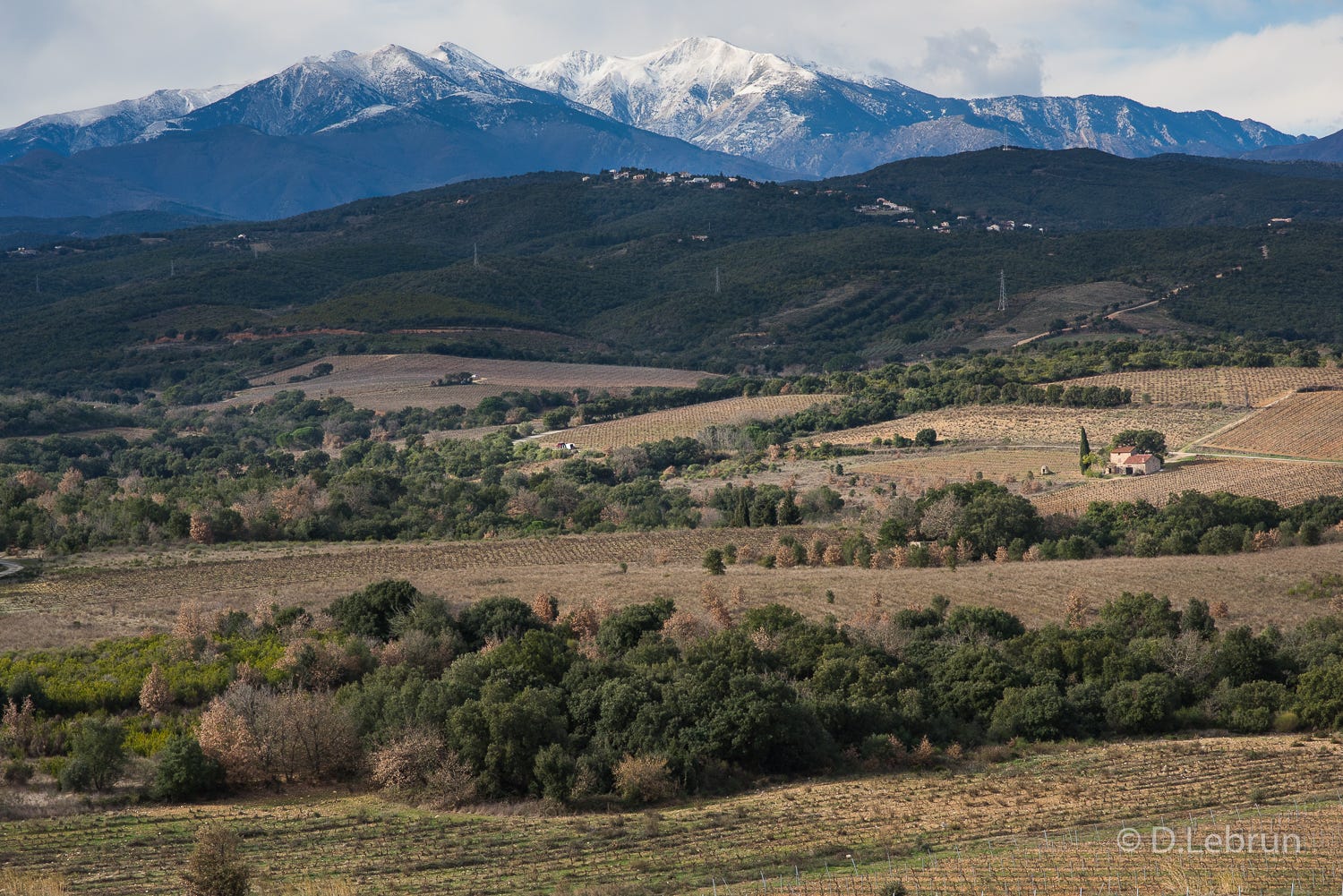
On the poor, stony soils of Les Aspres, organic farmers grow wine in a traditional way using autochthonous grapes, like Carignan or Syrah. These grapes are heat resistant and don’t need irrigation even in dry years.
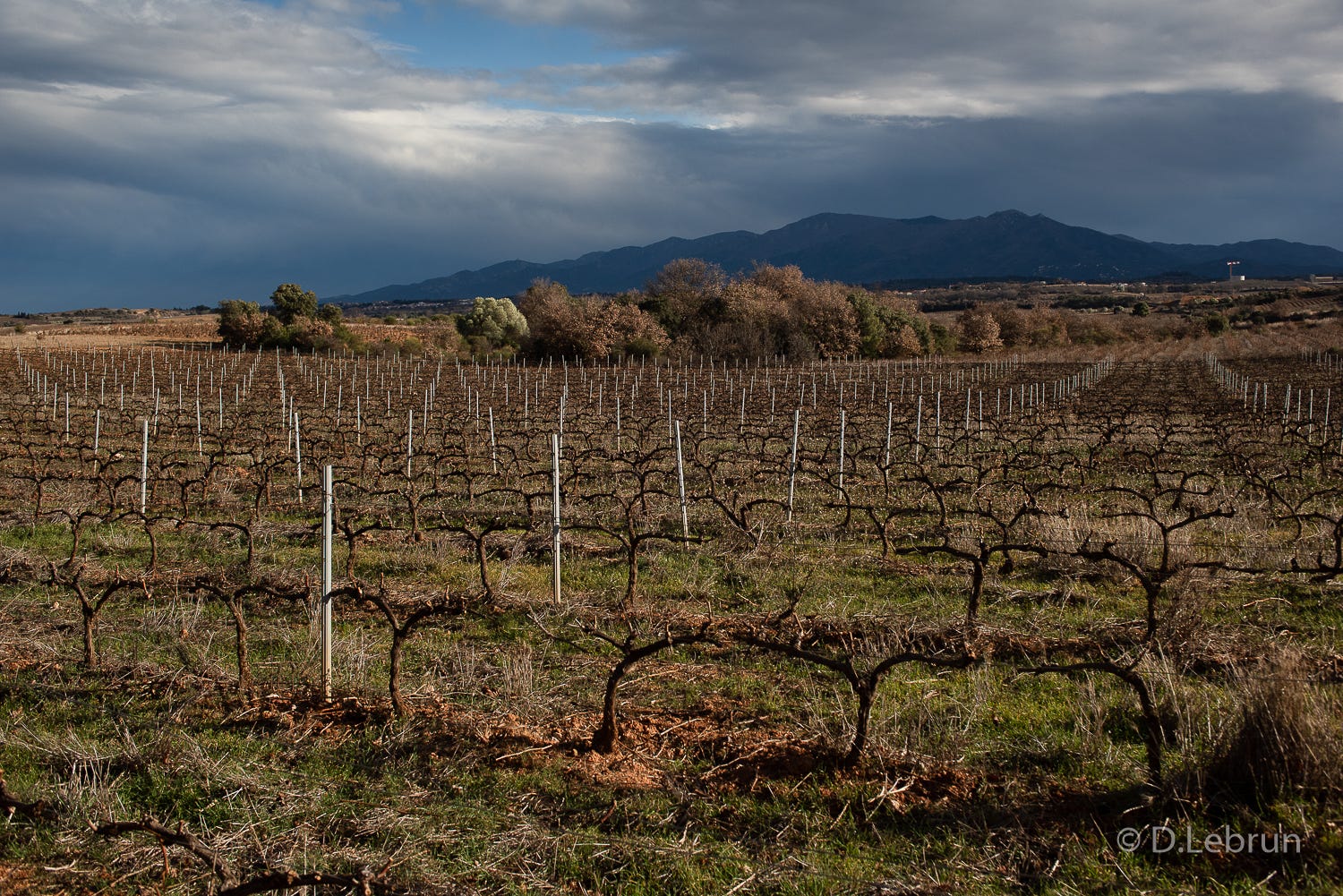
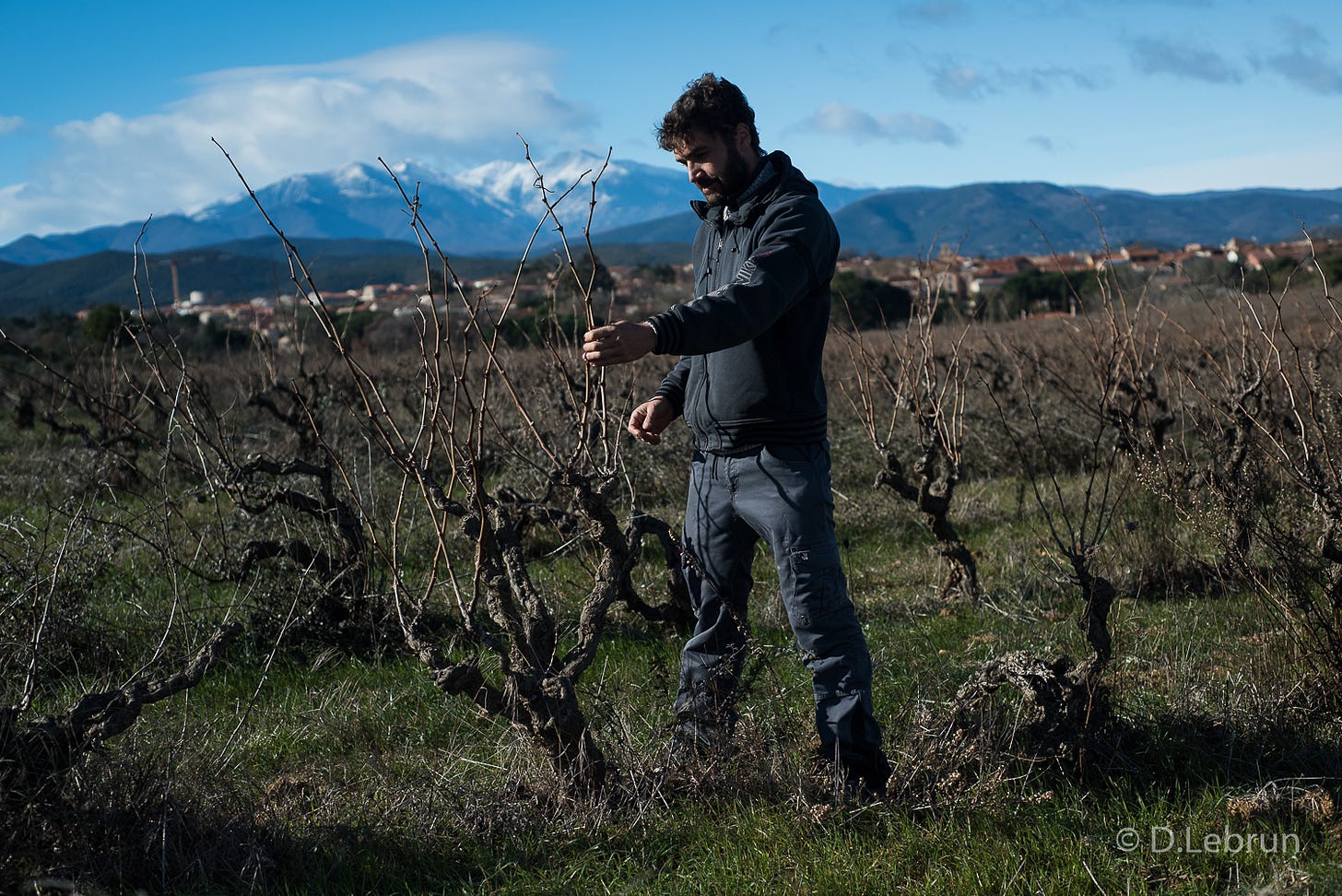
One of the most scenic views of Les Aspres is sheep grazing in the vineyards. This is only possible in winter, as during the growing season, they would feed on the new buds of the grapevines. Sheep can only graze in organic vineyards, as any kind of chemical treatments would affect their health and lead to miscarriages.
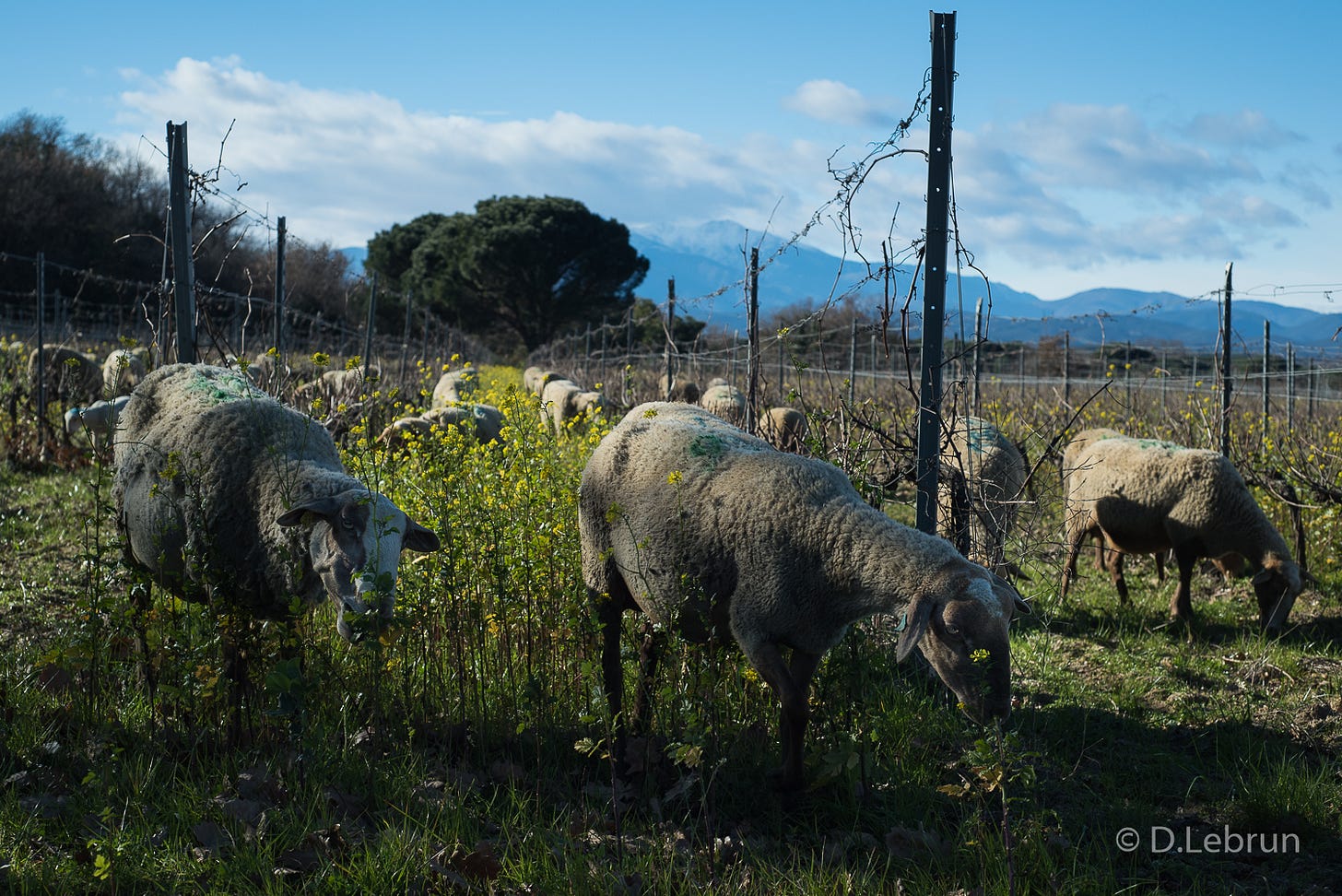
The agrovoltaic way of producing renewable energy with fruit trees or vineyards growing underneath is praised by the industry and associated research institutes, as a sustainable way of investing into solar energy. The subsidised, cost-intensive and land-extensive projects are carried out by multinational companies and are still in an experimental phase with an open outcome in terms of productivity. Before setting up the high-tech infrastructure, the land must be completely cleared of any vegetation, including cutting down (fruit) trees before levelling the land.
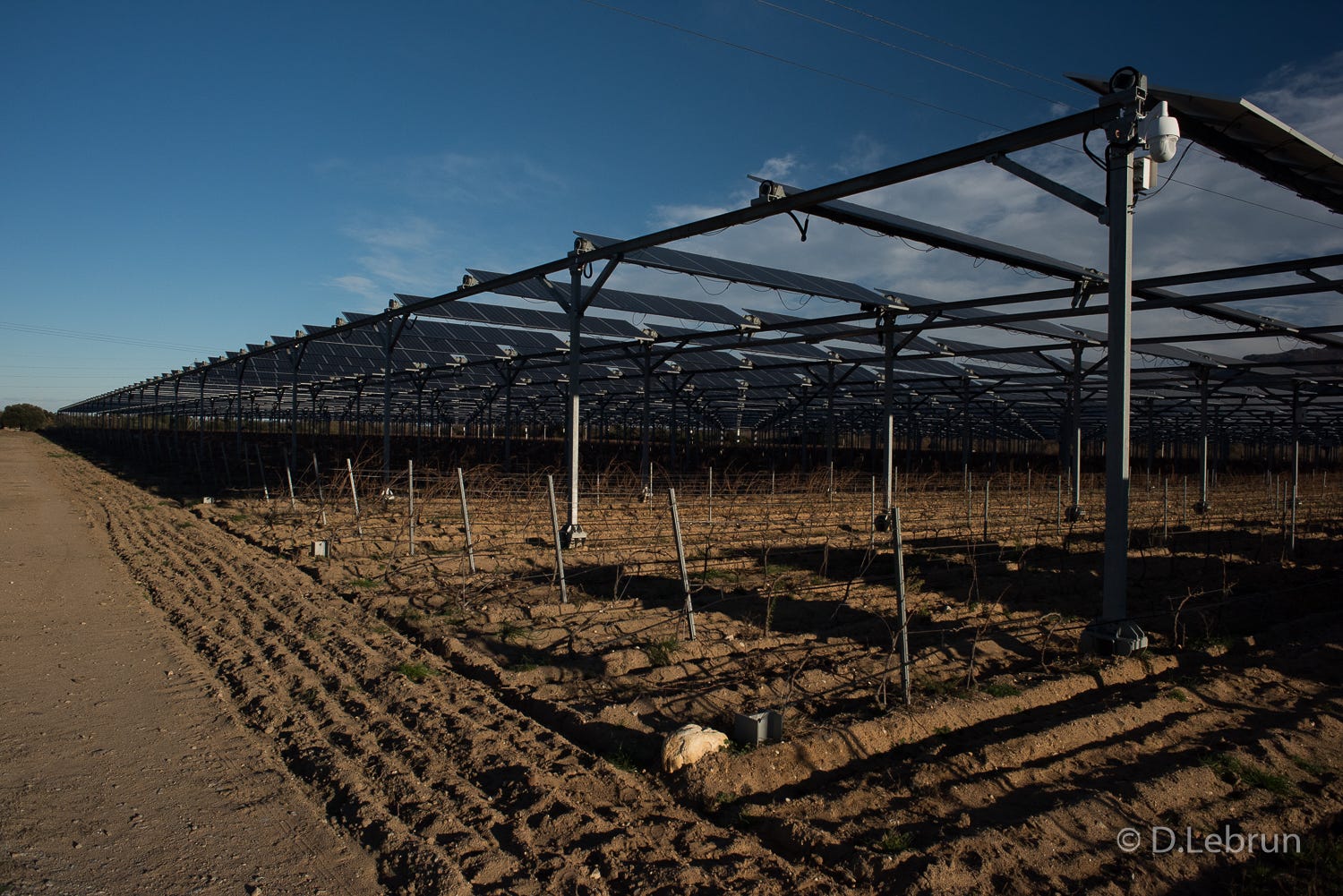
This manner of clearing the land for setting up the high-tech infrastructure collides with the interests of small farmers, like Lola. The sheep farmer relies on free access to the surrounding territory for the herd, especially to fallow land or organic vineyards. Any kind of barrier or infrastructure obstruct the sheep from roaming freely.
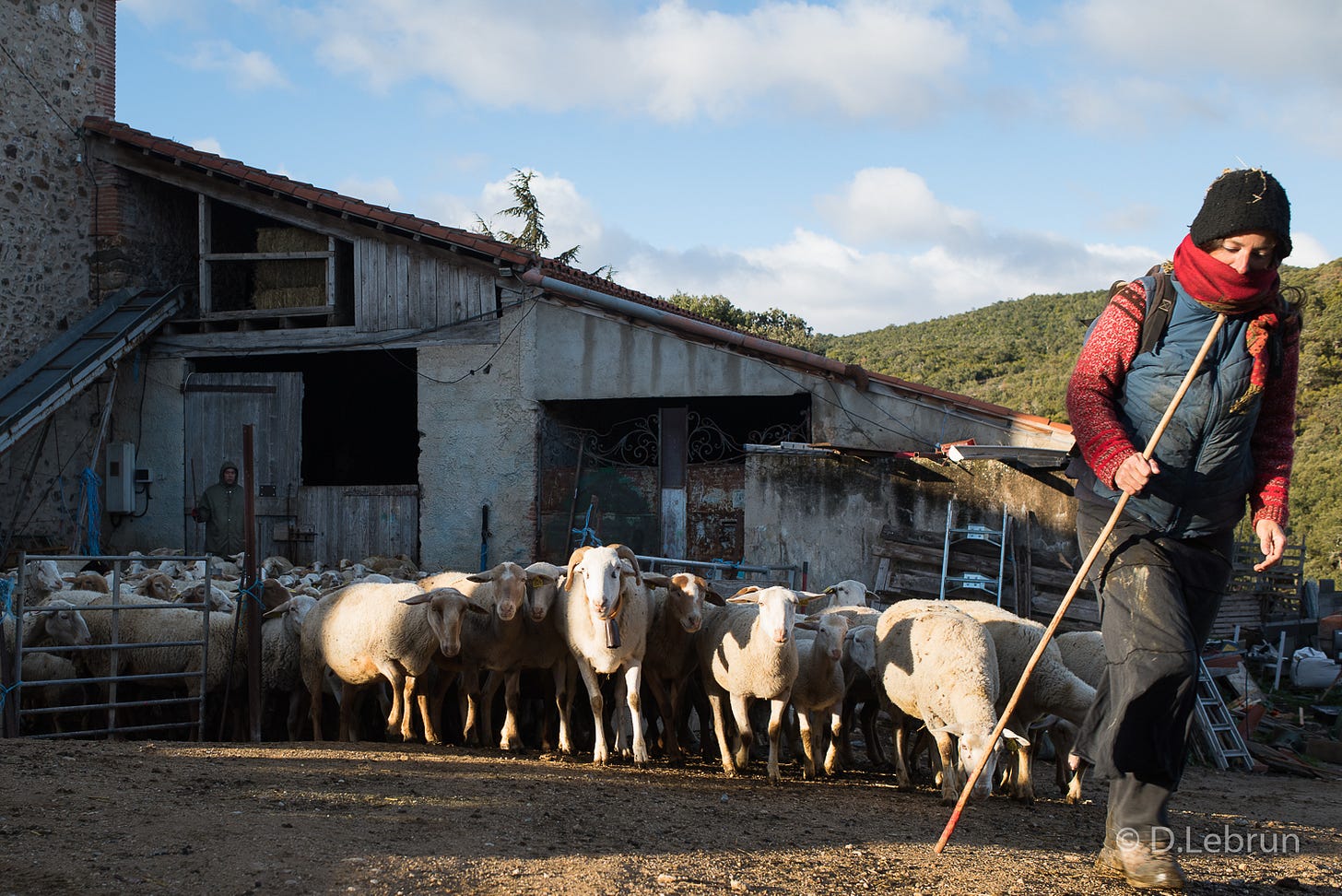
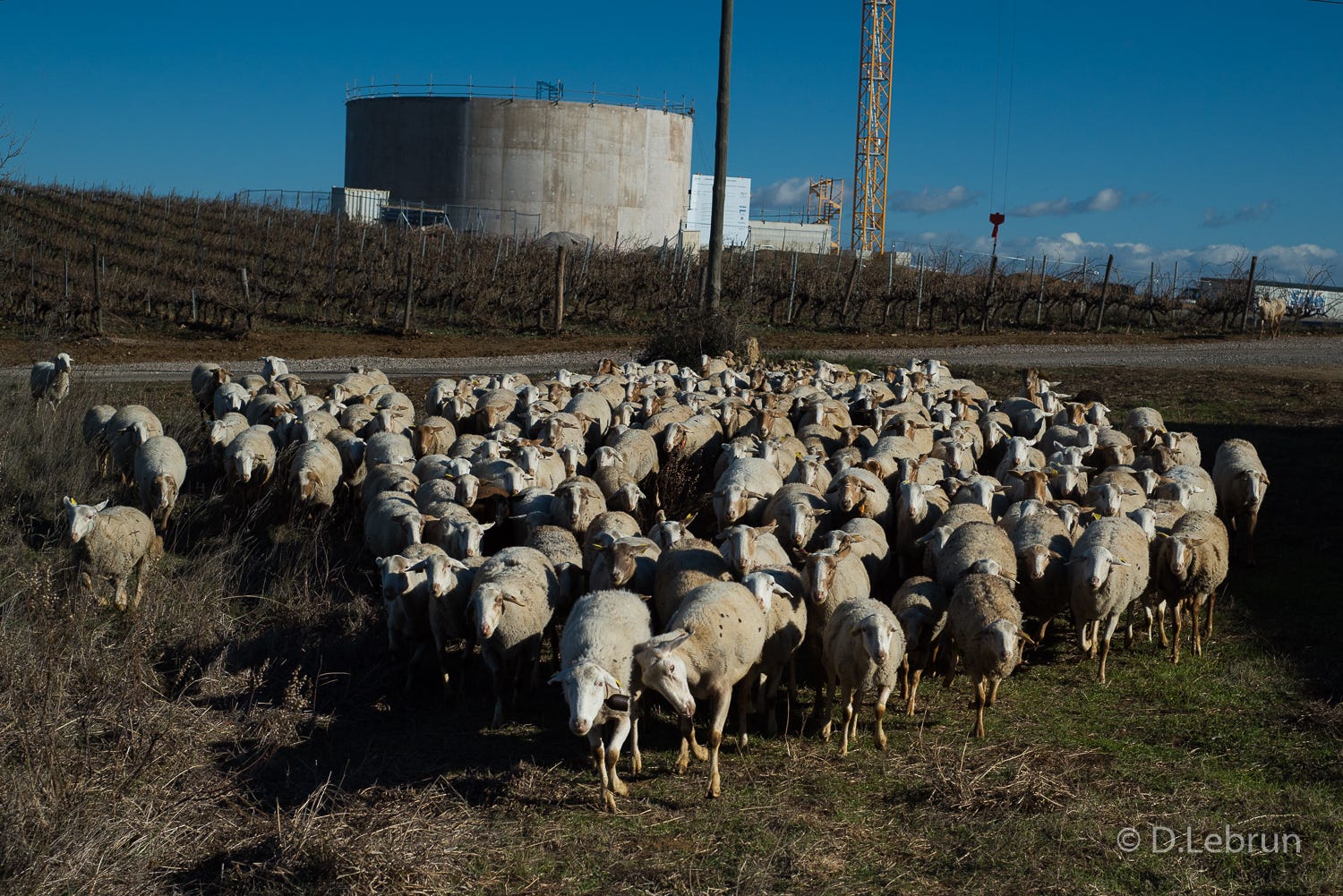
In terms of biodiversity and conservation of habitats (fallow lands are precious for small mamifers, birds of prey and insects) the ongoing set-up of agrovoltaic plants are highly questionable. The crops underneath the photovoltaic panels are often grown conventionally implying a high input of chemicals (herbizides, pesticides, fungizides, fertilizers etc.) which is contrary to the reasonable / organic agricultural approach practised in Les Aspres. Here, sheep should not graze as their health might be severely impacted.
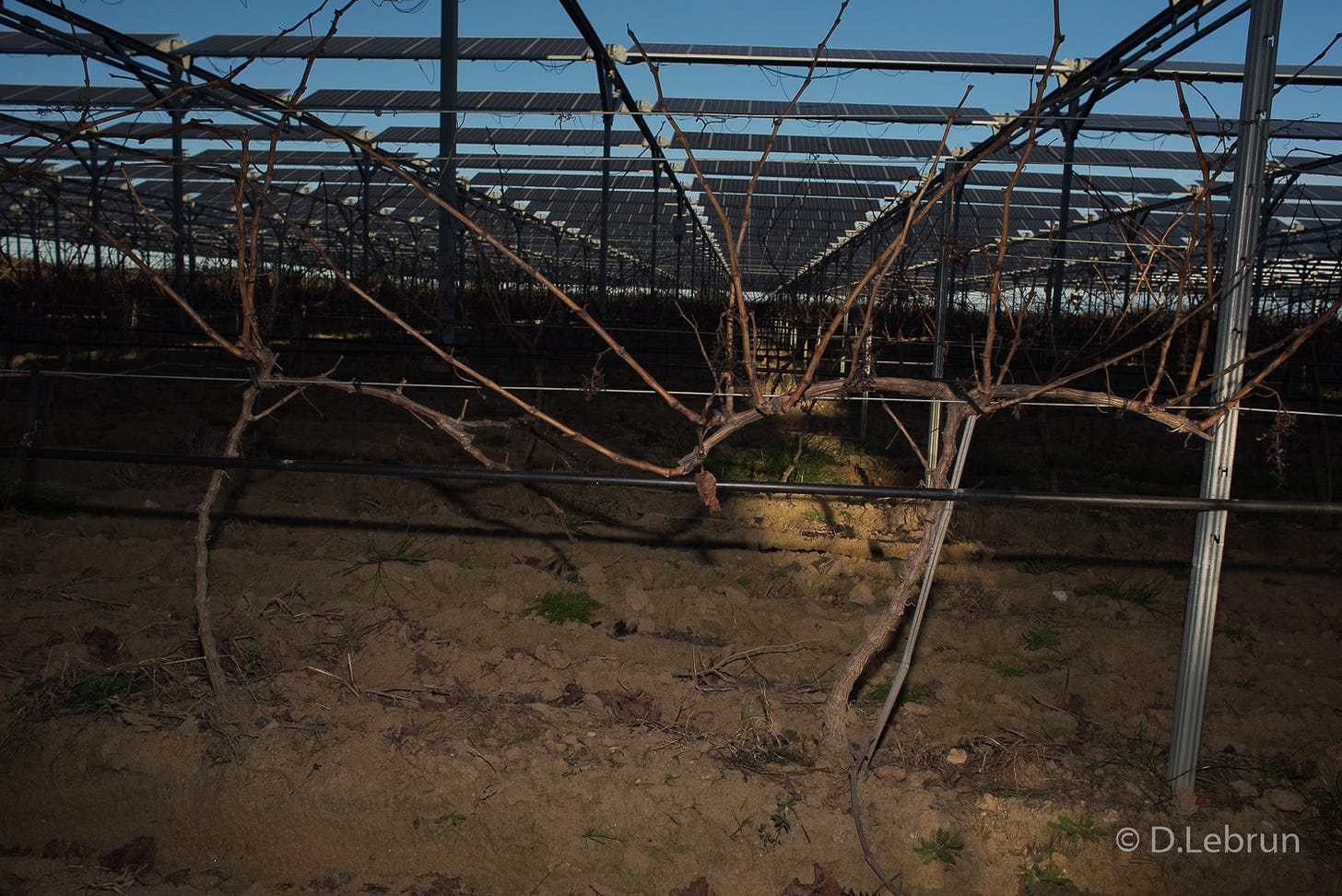
The set-up of high-tech infrastructure controlled by artificial intelligence replaces the knowledge of the indigenous farmers. On a human level, this means ignoring the know-how they have acquired over centuries.
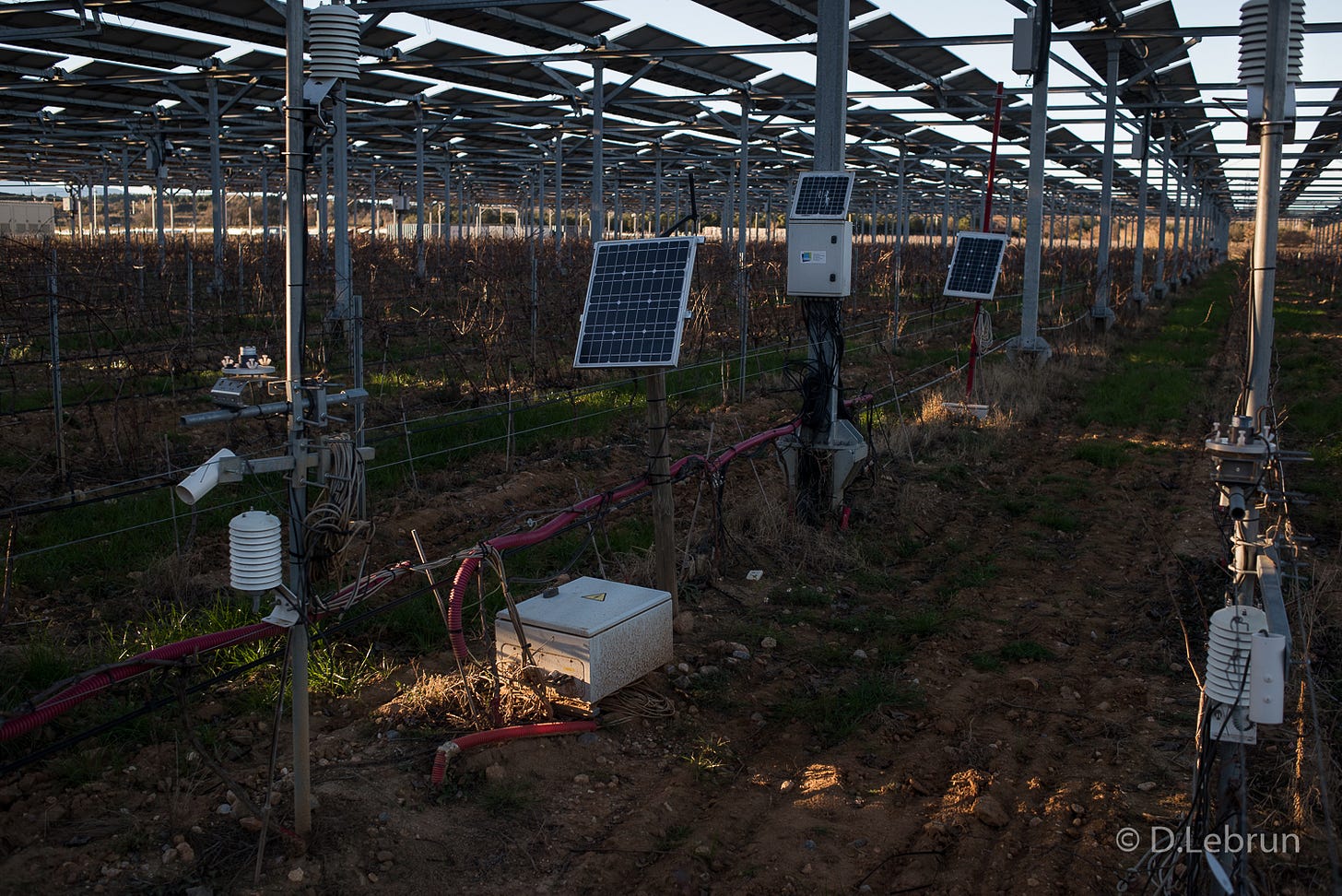
Life for small and medium sized enterprises, that are often family farms, is hard. However, talking to the locals reveals a deep passion and love for their homeland and jobs. They accept the harsh conditions of the region, which are very windy, very dry and economically rather poor. And yet they make the best out of its beauty and sunshine. They want to preserve the natural scenery with the majestic Mont Canigou.




